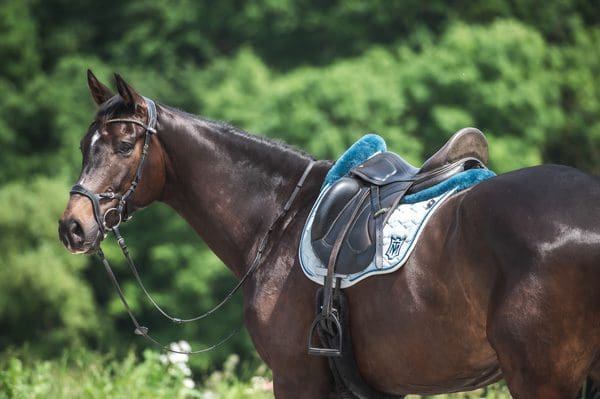
How to Tell if a Horse Likes You? 5 Exclusive and Shocking Signs
Share
Understanding how to tell if a horse likes you can significantly improve your relationship with your equine companion. The bond between humans and horses is often lauded, but it is built on a foundation of mutual respect and trust. Horses are like large children with complex emotions, and when they like someone, they express it in adorable and surprising ways.
In this article, we will dive into the remarkable signs that indicate your horse has feelings for you and offer some life-changing insights into equine behavior. If you've ever wondered about the intricacies of a horse's emotions, keep reading! This unmissable guide will enlighten every health-conscious pet owner about the affection horses can show.

The Language of Horses: Understanding Equine Emotions
Horses communicate in their own way, often through body language and actions. Recognizing their signals is crucial for understanding how they feel about you. Here are some of the signs that can answer the question of how to tell if a horse likes you:
1. They Approach You Willingly
One significant sign that your horse likes you is when they approach you willingly in the pasture or stall. A horse that feels comfortable will come to you instead of waiting for you to approach them. This behavior shows trust and interest, making it one of the most evident signs of affection.
2. They Nicker When You Arrive
If your horse nickers or whinnies when they hear you, thats a good indication they acknowledge your presence. This vocalization can express excitement and eagerness, showing that they might even be happy to see you. Pay attention; if they greet you enthusiastically, your bond is likely on solid ground.
3. They Follow You Around
Another telltale sign is if your horse chooses to follow you around. Similar to how dogs might follow their owners, a horse that enjoys your company will move with you, whether you're walking or standing still. This behavior signifies their comfort with you and a degree of dependency. It also reflects how they consider you as part of their herd.
4. They Show Relaxed Body Language
Horses express their emotions through body language. If your horse displays relaxed body languagesuch as lowered heads, relaxed ears, or soft eyesit suggests they feel safe and liked. In contrast, a tense horse with raised head and alert ears might be feeling anxious.
5. They Engage in Mutual Grooming
Just like people, horses enjoy social grooming. If your horse leans into you, rubs their head against you, or engages in mutual grooming, it's a clear signal they feel a strong bond with you. Mutual grooming strengthens the relationship and promotes trust, indicating that your horse likes you.
What Should You Do if You Suspect Your Horse Likes You?
If you notice these signs, congratulations! Your horse likely considers you a friend. Here are some tips for fostering this relationship:
- Spend Quality Time Together: Make sure to engage with your horse when possible, whether grooming, feeding, or just standing beside them.
- Learn Your Horses Preferences: Understand what your horse enjoys. It might be certain scritches, treats, or types of exercises. This consideration will strengthen your bond.
- Be Calm and Consistent: Horses are sensitive creatures. Your demeanor can affect their feelings. Stay calm and be consistent in your approach to strengthen trust.
Why Understanding Your Horses Feelings Matters
Understanding how to tell if a horse likes you transcends simple affection. A solid bond leads to improved training outcomes, better riding experiences, and a more harmonious relationship. It changes the way you interact with horses, promoting a life of ease and happiness for both you and your horse.
Related Topics to Explore
If you'd like to learn more about caring for your horse, you may find the following posts helpful:

Frequently Asked Questions
1. Can horses really feel emotions?
Yes, horses can feel a range of emotions and express them through behaviors, body language, and vocalizations.
2. How can I build trust with my horse?
Building trust takes time. Spend quality time together, be patient, and use positive reinforcement to encourage desirable behavior.
3. Do horses bond with other animals?
Horses can form bonds with other horses and animals, and they often seek companionship.
As an Amazon Associate, I earn from qualifying purchases.
